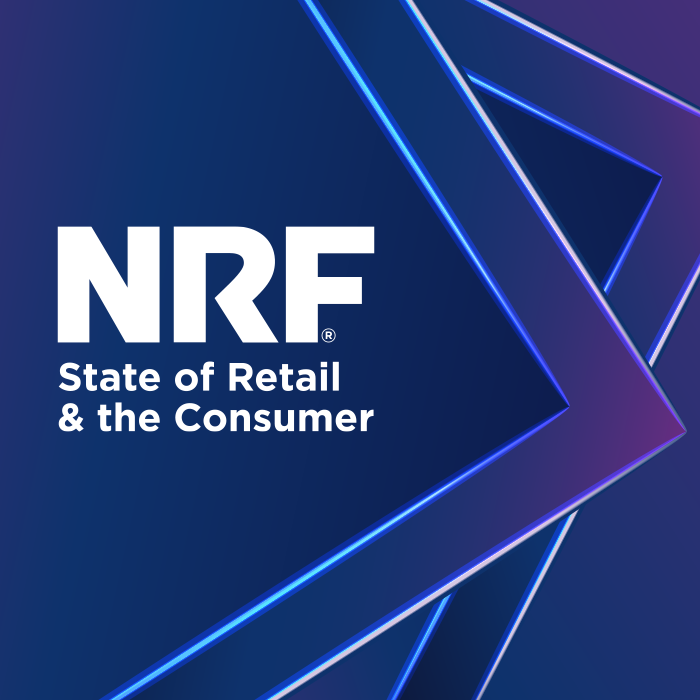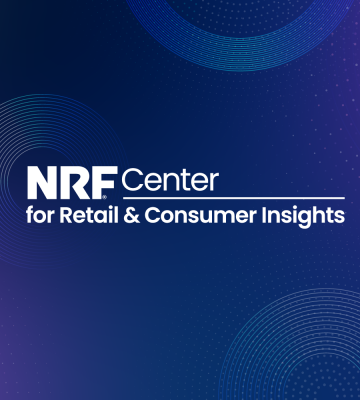A glance into consumers’ views on sustainability
)
Earth Day is just around the corner. However, while this single day remains important, sustainability and environmental issues are a year-round concern for many consumers and brands. The latest data from GfK Consumer Life, an NIQ company, shows that over half of the U.S. population now says concern for the environment is very serious and should be a priority for everyone, an 18-point increase in the last decade.
Consumers across the board are placing more importance on personal values like preserving the environment, regardless of age, gender or where they live. As their views about sustainability continue to evolve, so do their expectations for brands and retailers. To better understand these trends, NRF took a closer look at the latest data from GfK Consumer Life’s Green Gauge sustainability research.
Navigating sustainability
While many consumers acknowledge the importance of environmental issues, they face an increasingly complex landscape when it comes to what protecting the environment or living sustainably entails.
The true scale of environmental problems can seem daunting and difficult to navigate, and it shows: The percentage of Americans who report having a fair amount or a lot of knowledge about environmental issues and problems has dropped over the years, from 73% in 2010 to 59% in 2023, according to GfK Consumer Life.
Gen Z in particular struggles to grasp their role in sustainability: Over half agree they would do more for the environment, but don’t know how, up nearly 20 percentage points from 2020.
Retail and resale
As Americans try to understand which actions have the most impact, issues related to circularity like reducing waste and responsible sourcing have received more focus. The circular economy has seen gains in the marketplace, with 80% of Americans now agreeing that a waste-free lifestyle is an appealing possibility in the next 20 years.
For consumers, this often means purchasing previously used products. In fact, GfK Consumer Life’s study found that nearly half of U.S. consumers purchased something secondhand in 2023. Secondhand shopping, which initially targeted lower-income consumers, is now growing among those with higher incomes. In the past 10 years, higher-income consumers have increased their secondhand purchases significantly while lower-income Americans have decreased secondhand purchases.
Resale brands like ThredUp and The RealReal have made a name for themselves as go-to spaces for secondhand goods. Several other retailers have implemented initiatives with similar goals, such as Madewell’s “Madewell Forever” or “Circularity” by tentree, which both involve brands facilitating the resale of gently used goods to give their products a second life.
Circularity at all stages
Shoppers are also looking to the role of brands and manufacturers in promoting a circular economy. According to GfK Consumer Life’s study, in 2022 Americans considered manufacturing as the most important stage for products to be environmentally responsible (compared with either use or disposal), up nearly 10 percentage points from 2007. In contrast, disposal was seen as most vital in 2007, but is now perceived to be least important.
That shift represents a savvier American consumer and one who is open to circularity in the marketplace. Brands and retailers are focusing on this issue as well, with brands like Coach using leather scraps to design “Coachtopia” bags, HP creating tech out of ocean-bound plastics or Adidas setting intentions to use recycled, surplus and renewable materials in its “Three Loop Strategy.”
While the conversation around the environment will continue to evolve, it is clear that consumers are taking tangible steps to adjust their lifestyles and purchasing choices. At the same time, brands and retailers are making investments to offer consumers more choices for a waste-free lifestyle as well as to improve their own operations to reduce waste.
Learn more about what the retail industry is doing to tackle circularity at the NRF Center for Retail Sustainability.





